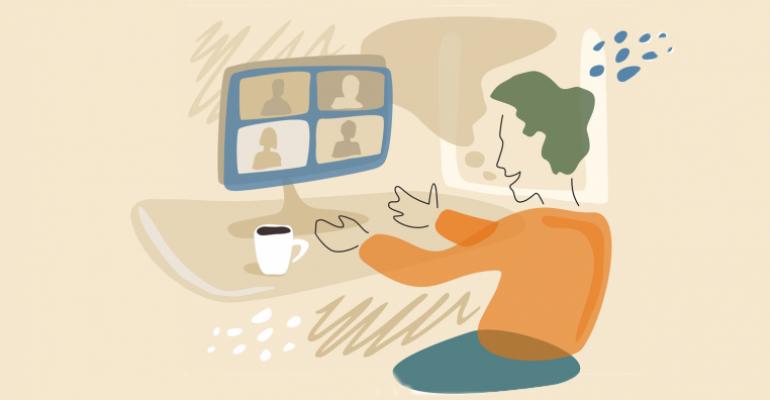Over the course of the pandemic, Adrianne Denenberg saw her department lose six of its 29 staffers while most of the 300 alumni events she and her colleagues plan each year for Northeastern University rolled on either in person or virtually—a decision often not locked in until the last minute.
 “All planners know the job requires us to always have a plan B or even a plan C,” notes Denenberg, a senior director of engagement initiatives at Northeastern for the past seven years of her 23-year planning career. “But I’ve heard it with colleagues at other institutions too, that the stress of needing multiple fully-formed plans we can execute because a change could occur at any moment [to the primary plan] is almost too much.”
“All planners know the job requires us to always have a plan B or even a plan C,” notes Denenberg, a senior director of engagement initiatives at Northeastern for the past seven years of her 23-year planning career. “But I’ve heard it with colleagues at other institutions too, that the stress of needing multiple fully-formed plans we can execute because a change could occur at any moment [to the primary plan] is almost too much.”
For Denenberg and her teammates, the best coping mechanisms for their collective stress are centered around communication. “When we were all working remotely, we’d do collective lunch hours where we’d all eat at the same time and chat via video,” she says. “We’d do some happy hours too. And it’s not just talking about our to-do list for work, but more about checking in on each other, making sure people felt okay,” especially those colleagues who live alone. Even now that some of her colleagues have returned to the office for part of the week—which is not mandatory and might never be again, she says—the group get-togethers continue in hybrid format.
One pandemic-related element of the job that Denenberg makes sure to address in those sessions is the rising incivility and short tempers she encountered as the pandemic wore on. “We planners understand we’re in a job where we cannot please all the people all the time,” she says. “But some of the people who weren’t excited for virtual programming were just so uncompassionate about things. If people want to share criticism with us, that is totally fine and we will respond thoughtfully, professionally, and politely. But just as some of the best came out of people during the pandemic, some of the worst came out too. It’s not fun.”
Denenberg also finds that talking with planners at other universities helps her to solve problems while maintaining proper perspective over the longer term. “There’s a small group of us who started connecting not long after Covid hit,” she says. “We knew each other loosely, but once things started hitting the fan some schools really did not know what to do because almost none of us had used virtual for our purposes before. So we kind of held each other up with suggestions and encouragement.” Even as the pandemic wanes, this occasional video-chat forum still takes place.
From those chats, “even if you don’t get an answer from the group that works for you, at least you find out you aren’t alone. For instance, when I felt like I was never going to see the light at the end of the tunnel, hearing from planners outside my organization really helped. They can say, ‘I haven’t had that specific problem, but I definitely understand what you’re frustrated about.’ It’s very healthy commiseration.”
Lastly, “I know this sounds so basic, but taking a deep breath, or talking to a friend, or getting lost in a hobby for a while, or even just screaming into a mirror could get you back to having a better perspective about your work on a given day,” says Denenberg. “I definitely have had to run into a bathroom and do the mirror thing more than a few times over the past two years.”
MeetingsNet’s Six-Part Report on Planners’ Sources of Stress and Their Coping Strategies:
Planners’ Breaking Points: See the responses to our planner-stress survey
Planner Perspective #1: Learning to Do More Without Burning Out
Planner Perspective #3: Upskilling Quickly, then Teaching Others





